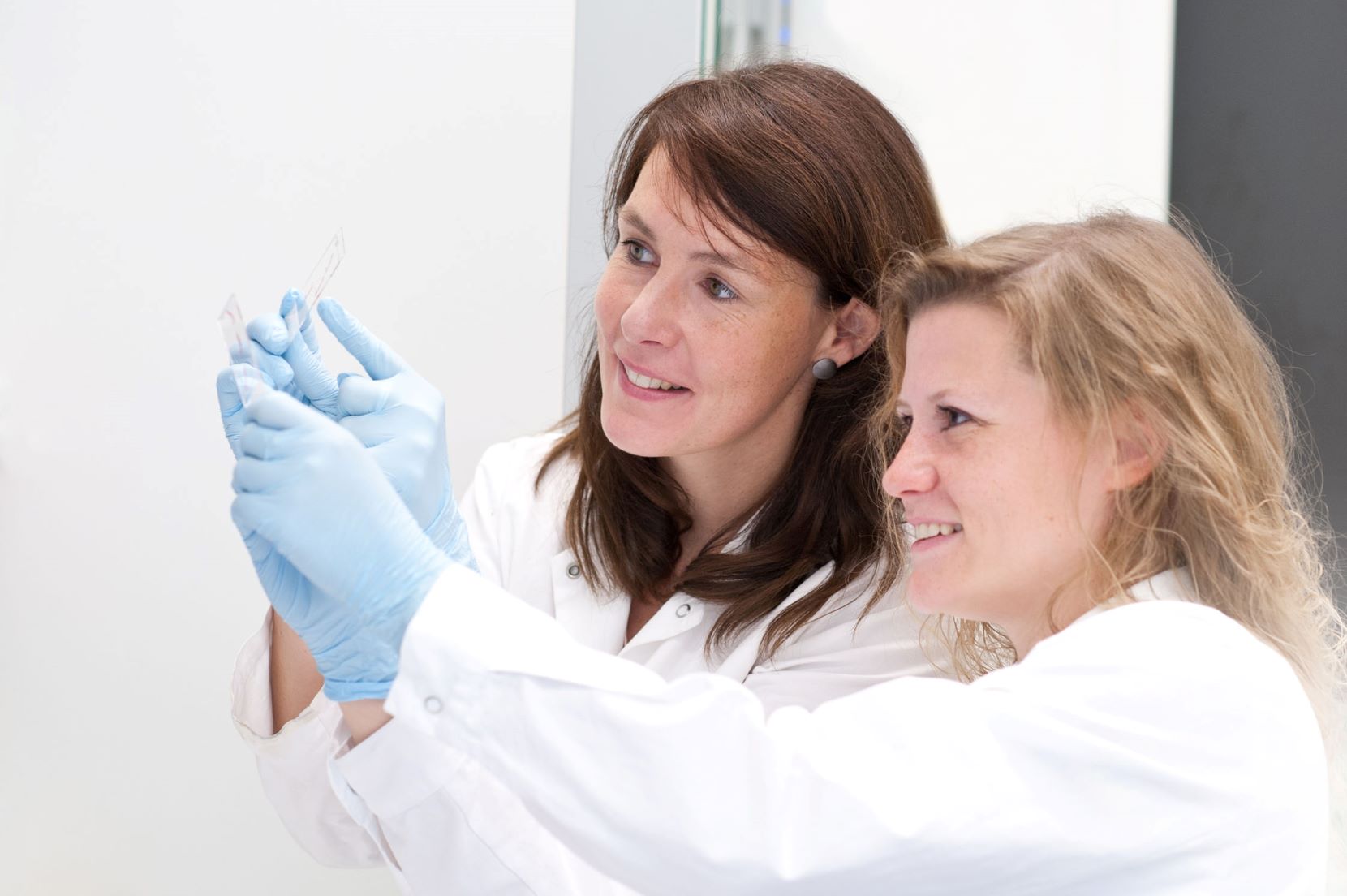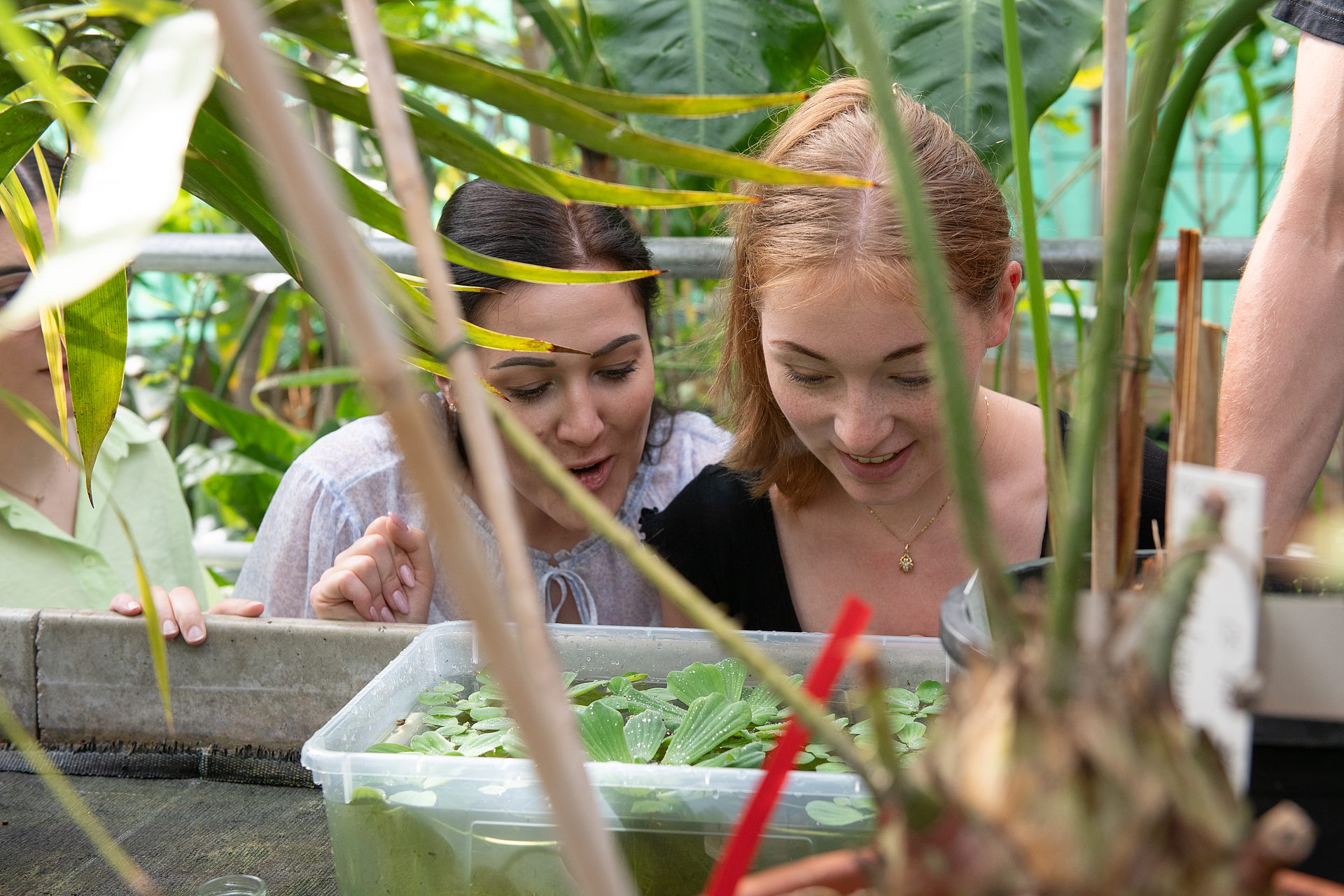Hands-on
Our study programmes always have a high practical relevance. This is not only a change from book studies, but is also a lot of fun.

The programme comprises courses in Biology, Chemistry, Biophysics and Medicine. It also offers a choice of minor subjects like Biometrics, Pharmacology/Toxicology or Virology. Compulsory elective modules provide specialised knowledge. Your Master’s thesis will teach you how to conduct independent academic work.
The following information is mostly only available in German because the teaching language of the course is German. Students who want to participate in the programme need to proof their language proficiency.
Master of Science (MSc)
120
4
Our study programmes always have a high practical relevance. This is not only a change from book studies, but is also a lot of fun.
In recent years, Biochemistry has become increasingly important in the field of science as the basis for many important and exciting research projects. The study of Biochemistry is particularly interesting for people who want to learn more about the chemical processes in living organisms.
On the Master's degree programme, which is partly taught in English, students can choose from a compulsory programme of some advanced lectures and many modules with biochemical aspects from Biology, Biophysics, Chemistry and Medicine. This allows students to set individual specialisations during their studies.
As a young research university, Ulm University is dedicated to the global challenges of the future - at the highest level. Literally, because we are the highest university in Germany.
We are characterised by a clear focus on Medicine and MINT subjects (Mathematics, Information Technology, Natural Sciences and Technology), an outstanding quality of education and excellence in research. We support around 10,000 students on our degree programmes. What research and teaching have in common: Curiosity, passion and commitment - at the highest level. We are the driving force behind Science City, Ulm's powerhouse for technology and knowledge transfer.
A great way to broaden your horizons in a discipline is to study at a foreign university. Ulm University students can apply for one or two semesters abroad at numerous universities, both throughout Europe as part of the ERASMUS programme and outside Europe. If lectures are not required, internships and theses at other universities are also possible.
Ulm University has exchange agreements with over 100 universities in 26 countries.
International Office
A "mobility window" ensures that our students can study abroad without complications and with full crediting of all service performances.
In addition to the exchange agreements, there are other special exchange programmes in the discipline of Biology (more information here).

A brief introduction to Ulm and Ulm University
Important professional fields for biochemistry graduates include the pharmaceutical, chemical or biotechnological industry and research. The area of quality control and quality management in many industries also offers an interesting field of activity.
After completing a Master's degree programme, a scientific career in research is often an option in Biochemistry.
Further, detailed information on possible career fields and bio-jobs can be found at
Welcome to the most liveable city in Germany. Albert Einstein's birthplace is a unique combination of science, leisure, top employers and culture. Top locations and events such as the Ulmer Zelt, Nabada or the Donaufest attract visitors to the quaint streets. Here you feel at home!
Copyright: City of Ulm